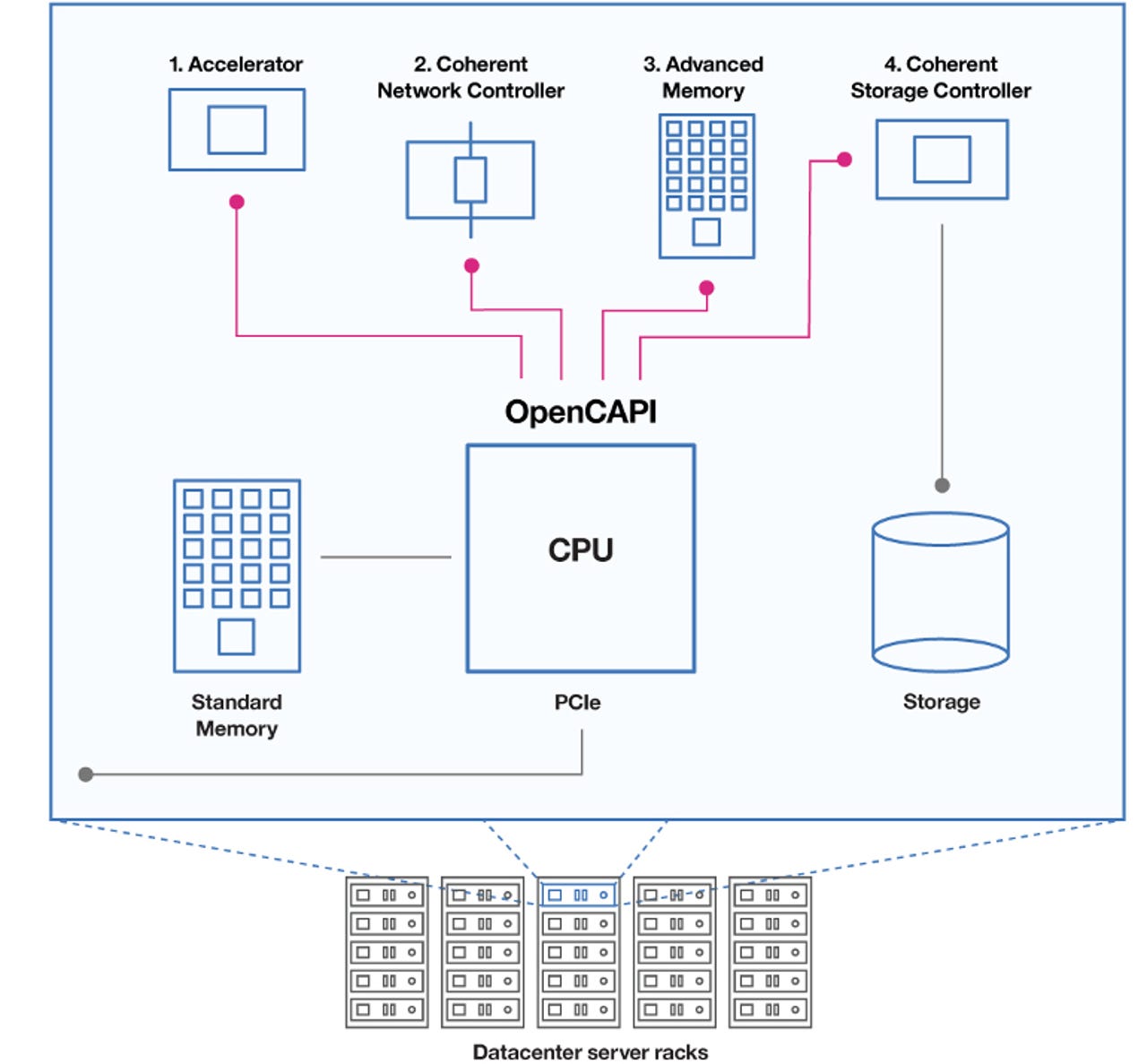Google, IBM, Dell EMC: We can make servers that are 10 times faster


OpenCAPI's server internal schematic shows the components of the new open specification.
Some of the world's largest technology firms have announced a specification for a technology aimed at boosting server performance by up to 10 times.
The OpenCAPI specification outlines the architecture for a new interface that would allow server CPUs to swap data with hardware accelerators, such as Field Programmable Gate Arrays (FPGAs) -- as well as memory, network and storage -- more rapidly than is possible today.
OpenCAPI has been released by a consortium led by AMD, Dell EMC, Google, Hewlett Packard Enterprise, IBM, Mellanox Technologies, Micron, NVIDIA and Xilinx.
The consortium claim OpenCAPI (Open Coherent Accelerator Processor Interface) will be necessary if the performance of computers is to continue to grow at the pace it has in the past.
As the rate at which faster processors are developed slows, they say computers will rely more heavily on hardware accelerators and advanced memory technologies -- such as phase change memory -- to deliver performance boosts.
To this end, computers will be able to use OpenCAPI interfaces to connect CPUs to hardware accelerators at 25Gbps, faster than the maximum 16Gbps offered by the existing PCI Express interfaces, removing some of the bottlenecks in today's computing architectures.
That performance boost will be deliver a variety of benefits, the consortium says, for example giving FPGA and Application Specific Integrated Circuits (ASICs) the ability to behave as if they were integrated into the CPU, thanks to OpenCAPI's performance, virtual addressing and coherence capabilities. The interface's coherent network and storage controllers will also reduce software overheads, improving the speed of data access.
That increased performance should benefit firms in industries ranging from finance to bioscience, which are switching to increasingly data-intensive workloads, such as machine learning and advanced analytics.
Servers that use OpenCAPI will be released from the second half of 2017, with the first being IBM POWER9-based hardware, after which IBM will enable members of OpenPOWER Foundation to introduce OpenCAPI-enabled products.
The new server being developed by Google and Rackspace, codenamed Zaius, will also use POWER9 processors and use the OpenCAPI interface. Networking specialist Mellanox will support the specification in "future products" and Xilinx plans to produce OpenCAPI-enabled FPGAs.
One notable exception to consortium was Intel, which has also chosen to stay out of other open standards groups for datacenter technology in the past, such as CCIX and Gen-X.
In recent years there has been a push by some of the biggest tech firms to share designs for servers, storage and other datacenter infrastructure, in order to drive efficiencies, as part of the Open Compute project.
READ MORE ON DATACENTERS
- AWS cements hybrid cloud position with VMware partnership: Here's what it means
- Pure Storage, Cisco tighten converged infrastructure links
- Dell EMC adds to flash storage system lineup, touts more than 3,000 XtremeIO customers
- Google Cloud Platform to launch Brazil region
- Amazon Web Services spreads its cloud: Now AWS opens up France region
- TechRepublic: Why data center managers shouldn't overlook object storage backends
- CNET: Facebook might open new data center in Denmark